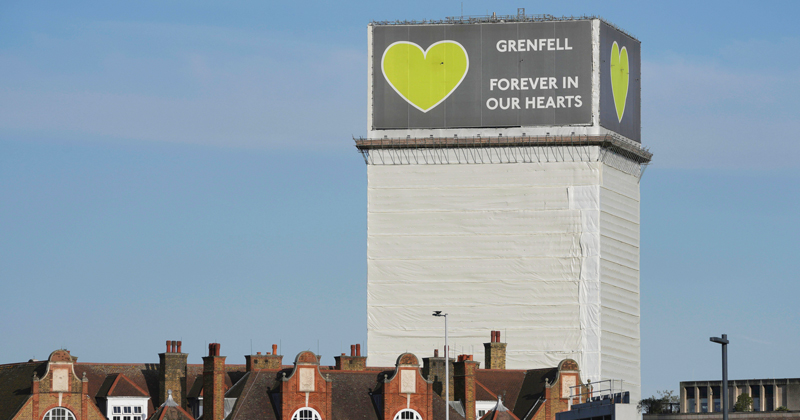A “well overdue” update on school fire safety advice proposed in the wake of the Grenfell Tower disaster is one of seven forgotten policies, a Schools Week investigation has found.
Campaigners also fear consultations on the regulation of unregistered alternative provision and on new guidance on home education, both of which had fairly broad support, have fallen by the wayside.
It comes as the Labour government embarks on major new reforms, including on Ofsted, the curriculum and SEND. But Schools Week analysis of consultations conducted over the past five years found seven with a response overdue.
Departments are supposed to publish consultation responses within 12 weeks. However, a 2021 consultation on ‘Building Bulletin 100’ guidance, which governs fire safety design in schools, is still awaiting a response. The latest version was published in 2007.
That consultation followed a call for evidence on the guidance in 2019, commissioned in the wake of the Grenfell Tower tragedy.
Fire compliance ‘difficult issue’ for schools
Tim Warneford, a school buildings and funding expert, warned that an update was “well overdue”, but guidance around fire safety “is a very sticky subject that no body, party or agency is particularly willing to stick their heads above the parapet for”.
Fire compliance was a “difficult issue to define for schools”, he added.
For example, insurance policies can insist on different levels of protection – those that prevent the spread of fire, or those that also detect and extinguish fire.
“The enormous risk that stems from the above confusion is that too many schools undertake their own in-house fire risk assessments via some template they have downloaded as a means of saving money,” Warneford said.
“They thus run the considerable risk of thinking of themselves as compliant.”
Calls for DfE to revive unregistered AP reforms
A government response is also outstanding for a consultation launched last May which set out plans to clamp down on unregistered alternative provision.
The proposals would have time-limited the use of unregistered AP, require settings to comply with national standards and have councils maintain lists of “approved” provision for schools to use.

Kiran Gill, founder and CEO of AP charity The Difference, said the original consultation was “itself long overdue”.
“Currently far too many vulnerable children are placed with providers that operate without adequate oversight… far too many are unsafe environments where staff are not required to undergo criminal record checks, and where the quality of education is not routinely evaluated.
“The department need to respond urgently to show they are taking this critical safeguarding issue seriously. Our children deserve better.”
Home ed guidance proposed ‘more positive relationships’
Another response well overdue relates to a consultation launched in October 2023 on draft new elective home education guidance. It proposed voluntary registers of children in home education and information-sharing agreements with GPs and police.
Many of these proposals have been superseded by the Children’s Wellbeing and Schools Bill, which proposes compulsory registers, checks on the suitability of the home learning environment and a council veto for some pupils.
But the proposed guidance also aimed to “promote a more positive relationship between local authorities and home educators”, a message that Wendy Charles-Warner, from Education Otherwise, fears has been lost under the new government.
Of the remaining four overdue consultations, one relates to a proposed update to GCSE computer science content, which ran last summer.
Another proposing the removal of an expectation that students engage with unfamiliar and abstract material in language GCSEs ran in 2022.
The other two relate to the last government’s proposed update to relationships, sex and health education guidance and its new guidance on how schools should support gender-questioning children. Both were controversial and the new government has said both are being reviewed.
Consultations ‘aren’t free to do’
The DfE said it had no further update on overdue responses. As policies were launched under the previous government, they are being reviewed.
Jonathan Simons, partner at Public First and a former Downing Street education adviser, pointed out that consultations “aren’t free to do”.
“Even a small team of officials working on writing the document, sorting and reading all the responses, coming to conclusions and sending those up to ministers for a view takes time – often weeks or months,” he said.
“And of course, on the other side, policy teams in charities and companies, and educationalists and MATs and others spend time writing replies to the questions that government is asking.”
He said it was “fine for priorities to shift – especially when governments change colour – but to just leave consultations hanging is verging on rude”.















Your thoughts